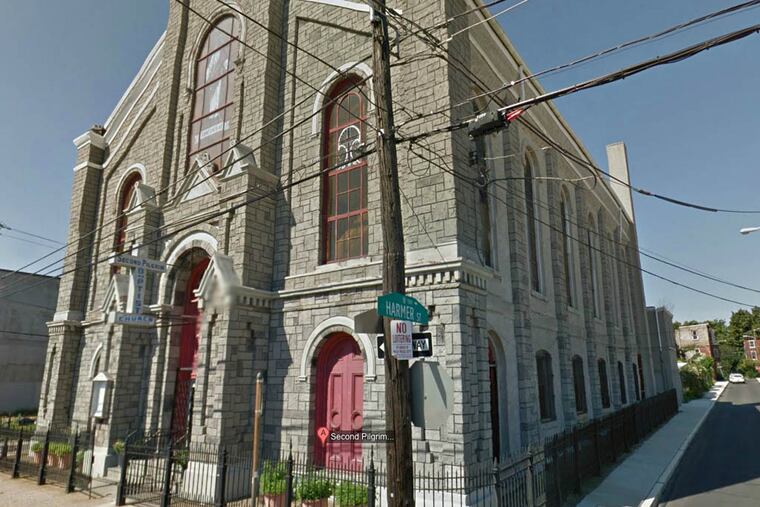Lawsuit claims pastor illegally trying to sell church property
North Philly's 2nd Pilgrim Baptist Church filed the suit against Pastor Daniel E. Sutton.

WYLIE WALKER sat yesterday in a basement office at North Philadelphia's Second Pilgrim Baptist Church, where he is financial secretary. His church has filed a lawsuit against its minister, the Rev. Daniel E. Sutton.
The church is 98 years old, and many members, like Walker, have been there for decades. Sutton was hired in November 2006.
Walker and other congregants filed the suit last month, describing Sutton as "an employee" who had breached his employment contract by signing an agreement to sell the church building and three surrounding parcels for $1.1 million.
The church is on 15th Street near Poplar. Records in the city's Office of Property Assessment put the value of the four properties at more than $2 million.
"We are sitting here on a gold mine and they [Sutton and the purchasers] are trying to take advantage of us," Walker said.
Added Barbara Greene, the church treasurer: "My biggest problem with this whole thing is it's a prime property. They are building homes and Temple [University] student apartments all around us.
"What he's selling our church for is way below its market value."
Neither Sutton nor Jeffrey Resnick, a lawyer for both Sutton and the developer who wants to buy the properties, returned phone calls yesterday. Sutton has not returned calls since early this month.
The church members are also angry that Sutton wants to move the church to a property at 7th Street and Tabor Road in Olney that has no sewer connections. Walker said the current water bill of about $300 a month would rise to about $1,000 in Olney.
Walker said that the potential buyer set up an escrow account with $125,000 as a deposit on the church. But neither Walker nor Greene, the treasurer, know exactly whose name the escrow account is in or what bank is holding it.
Members also are upset that Sutton wants to change the name of Second Pilgrim and declare it nondenominational so it would no longer be a Baptist church.
In a court hearing earlier this month, a Common Pleas judge ruled that Sutton could not sell the church while members claim title to the deed, according to lawyer Calvin Taylor, a member of the church.
Both Walker and Greene said most members may agree to a sale of the church but oppose selling it without a vote from the congregation and signatures from the trustee and deacon boards.
Walker said Sutton handpicked a few church members to serve as the board of directors for the church's "corporation" and they gave Sutton permission to sell the church.
Walker showed the Daily News a letter stating that Sutton had signed an agreement of sale in March 2014 to sell to CRP Builders. But the board of directors met last month and agreed "after the fact" to a resolution to sell.
The lawsuit contends that the board of directors has no authority to sell the church.
"The properties in question belong to the Second Pilgrim Baptist Church Congregation, not Defendant, Daniel E. Sutton," a document filed in support of the lawsuit earlier this month said.
"Therefore, the church congregation has the right to decide whether or not to sell their properties, particularly since the sales price is so grossly inadequate."
The lawsuit against Sutton also accuses him of fraud for setting up a PayPal account on a church-owned website that has Second Pilgrim's name at the top of the donation page.
But the church treasurer, Barbara Greene, learned when she went to set up an account that PayPal told her that Daniel Sutton had already set up an account with funds going to D.E. Sutton Ministries.
The lawsuit says: "Defendant has [led] members of the Second Pilgrim Baptist Church to believe they were making donations to the church when, in fact, the money was going to the D.E. Sutton Ministries for the personal use of the Defendant."
Greene said that she and Walker went to the District Attorney's Office to file a complaint but were told that unless they could show how much money is missing, the D.A.'s office couldn't act.